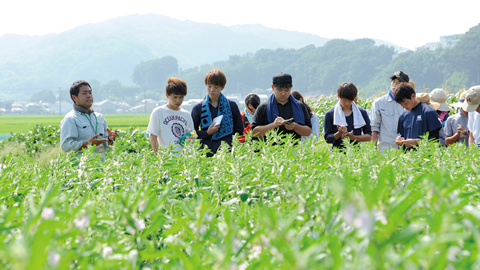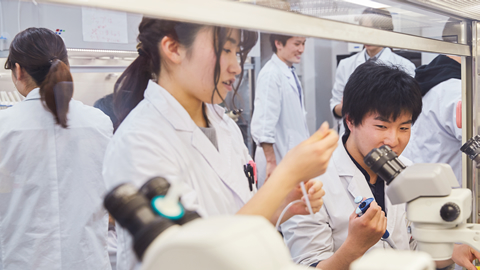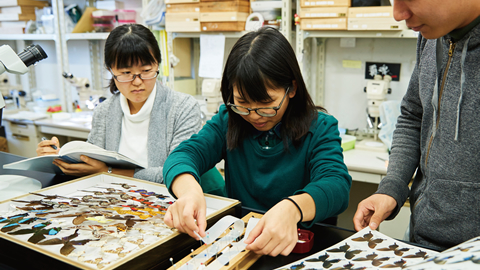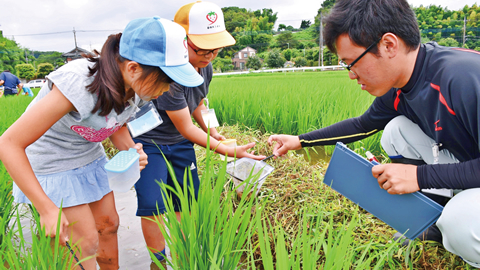Faculty of Agriculture
Striving for Coexistence between Humans and Plants and Animals.
The Faculty of Agriculture has the longest history at Tokyo University of Agriculture. Within this faculty, the production of agricultural plants and animals and the fundamentals of agricultural sciences are studied. In the year 2006, a new department called the “Department of Applied Biophilia” was established in response to the evolution of applied sciences for production. The old aim was to improve food production, but current development through historical trends and technological innovations has led into the stage where biotic phenomena surrounding plants and animals can be scientifically investigated. We have expanded into areas of the life sciences such as ecosystem conservation and partnership between humans, plants, and animals.
This faculty will still vigorously conduct research and education that contribute to secure food production.? But at the same time, the faculty will tackle contemporary topics such as responses to environmental issues, securing the sustenance of biotic resources, as well as the maintenance and enrichment of human mental and physical health and improvement of the quality of life (QOL) through symbiotic coexistence with other organisms, healing through plants and animals, plant- or animal-assisted therapies and welfare.
Situated on Atsugi Campus in a park-like atmosphere rich with greenery, the faculty now runs three departments, the “Department of Agriculture”, the “Department of Animal Science”, and the “Department of Applied Biophilia” to pursue Agricultural Sciences into the new era.? The Department of Agriculture engages in the sciences of agricultural production and environment, the Department of Animal Science studies closely the partnership between humans and animals, and the Department of Applied Biophilia explores the science of healing through other organisms.? Collaboration among the three departments will enable a more integrated approach to the science surrounding not only plants and animals, but also their relationship with humans.
Departments
General Education
Laboratory of Science Education
Attached to the Faculty
Institute of Agriculture
Director OGAWA Hiroshi, Professor
Isehara Farm
Director KAMIJI Yoshiaki, Professor
Deputy Director
FUJISAWA Hiroyuki, Professor
ISHIKAWA Kazunori
, Professor
Fuji Farm
Director KUWAYAMA Takehito, Professor
Deputy Director
HIRANO Takashi, Professor
NOGUCHI Tatsuo, Associate Professor
Bio-Therapy Center
Director TSUCHIDA Asami, Professor
Electron Microscope Center
Director SASAKI Takeshi, Professor
Academic Information Center
Director WAKUI Kenji, Professor
Food Processing Center
Director TADA Koutarou, Professor
Animal Health and Diseases Control Office
Director MASUDA Koji , Professor




